Types of pericarditis, its symptoms and main principles of treatment
Signs and treatment of pericarditis for adults and children
Pericarditis is an inflammatory disease of the serous coat of the heart. It begins abruptly. The pathology is most often a complication of an internal organ disease, it is rarely an individual disease. The inflammation is accompanied with the liquid generation in the pericardial cavity or the formation of fibrous coarctations that causes difficulties of the cardiac function. Pericarditis can be acute and chronic.
Acute pericarditis can be:
- dry (fibrinous);
- with effusion;
- with or without a cardiac tamponade.
Chronic pericarditis:
- with effusion;
- adhesive;
- asymptomatic;
- with lime deposition – armored heart;
- with cardiac disfunctions;
- constrictive pericarditis.
As for the cause of occurrence, pericarditis can be:
- infectious (tuberculosis, bacterial, fungal, virus, protozoa-induced);
- aseptic (allergic, rheumatological, in case of blood diseases, malignant tumors, traumatic, postinfarction, in case of vitamin C deficiency, etc.).

Symptoms of pericarditis
The main signs of the disease being examined are as follows: severe chest pain, cough, shortbreathing, general weakness, weight loss, in difficult cases – blood expectoration. Cyanosis, jugular venous distention, rapid heartbeat, lower limbs edema, increase of liver and abdomen dimensions.
They can be accompanied with acute terebration, increased pain when coughing, deep inhaling and exhaling, sense of discomfort in neck, shoulder blades, left hand.
Clinical picture of certain types of pericarditis
Adhesive pericarditis shows dull pain in heart with gradual increase in intensity, and shortbreathing that aggravates with physical activities.
Constrictive pericarditis is a dangerous state when the liquid is not excreted out of the heart cavities and may become a purulent process. A patient suffers from the edemas of the face and lower limbs.
Pericarditis with effusion may develop on the background of the long-lasting temperature elevation. Against the background of constant pain episodes, there is a decrease in blood pressure and a decreased pulse.
Fibrinous pericarditis: the liquid does not accumulate in the heart cavities, so the symptoms are not evident. Edemas are absent, there is a dull chest pain and the general physical state is within normal limits.
Diagnostics of the disease
To confirm the diagnosis, a full-fledged examination of a patient is required. Diagnostic procedures include as follows:
- chest X-ray radiography;
- electrocardiography, which is the most informative type of the examination;
- clinical blood analysis and blood chemistry.
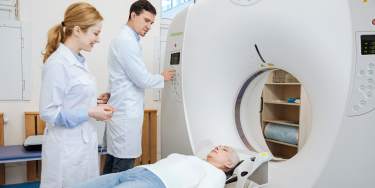
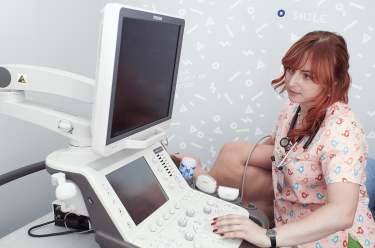

Treatment of pericarditis: general principles
The treatment of the underlying disease that has provoked pericarditis is performed. For the treatment of pericarditis with effusion non-steroidal anti-inflammatory drugs (Ibuprofen, Diclofenac) are prescribed to decrease pain and reduce the intensity of the inflammatory process. In case of the late diagnosing of the disease, when pericarditis is defined as chronic, the patient is assigned with Colchicine that has a powerful analgesic and anti-inflammatory effect in combination with non-steroidal anti-inflammatory drugs.
The prescription of antibacterial therapy is pathogenetic in case of diagnosing of the infectious pericarditis. It is advisable to determine the causative agent; it will help to choose the most efficient antibiotic. A patient feels relief already in 5–7 days of 21-day course.
If there is a threat of a tamponade, an ultrasound-guided percutaneous puncture or draining is performed with the evacuation of content.
Recommendations for the traumatic pericarditis are quite different. In this case, pharmacological therapy is not mandatory. A patient will have to remain at bed rest to recover after an injury. If pericarditis is caused by a penetrating wound of the chest, a surgical intervention is performed followed by an antibacterial therapy.
Glucocorticosteroids with potent anti-inflammatory effect may be used for treatment. Those are the main medications for the treatment of chronic pericarditis of children (with autoimmune diseases such as systemic lupus erythematosus disease, etc.).
Diuretics. These medications can evacuate redundant liquid off the body safely and quickly. It is important to take them in case of the edemas of lower limbs, face and neck.
Narcotic analgesics These medications are used extremely rarely for the treatment of pericarditis, as they may cause drug addiction.
Forecast
The disease has the favorable prognosis if treated. If there is a serious form of pericarditis, and the treatment has not been started timely or has not been correct, complications may arise:
- cardiac insufficiency. Usually progresses in case of constrictive pericarditis, when the heart tissue calcinates, becomes rigid and blocks normal heart contractions;
- cardiac tamponade. Progresses in case of the fast accumulation of large amount of fluid in the pericardial sac. The exudate fills the pericardial sac and may cause a cardiac arrest.
Such complications require immediate medical assistance.
The treatment of pericarditis may last up to three months with the case follow-up by a cardiologist. After recovery a person lives his/her usual life, his/her working ability is completely re-establihed or slightly reduced.
Article author: Burlachenko Liliia
Publication date: 07.10.2020
Our services
Service packages
Our advantages
Our doctors
Our clinics
ISO certificates
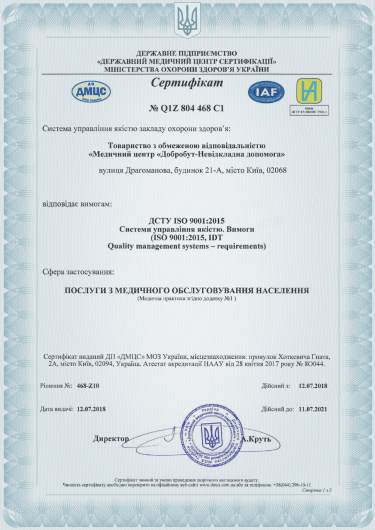
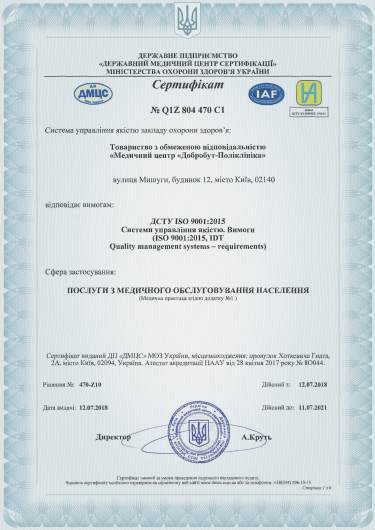
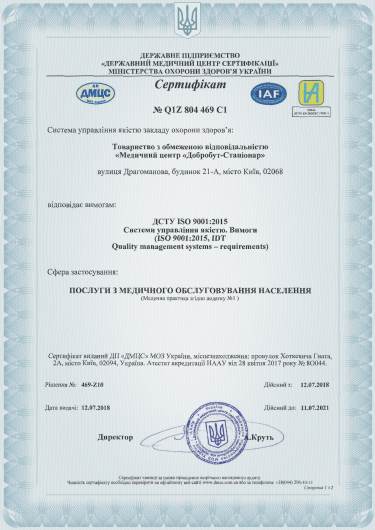
Accreditation certificates
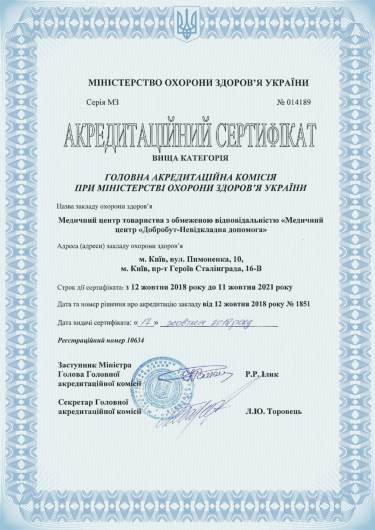
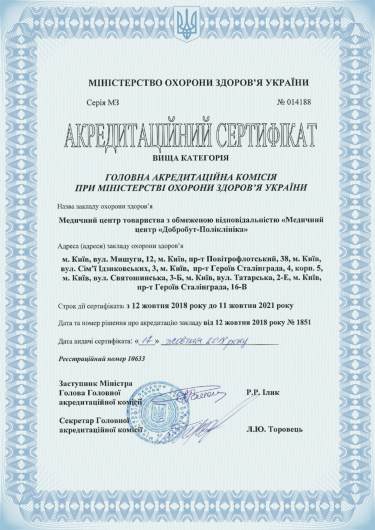
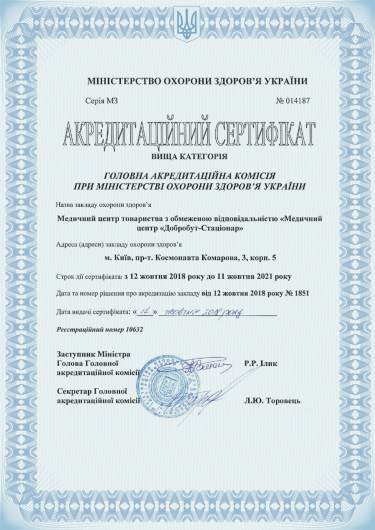
Medical practice licenses
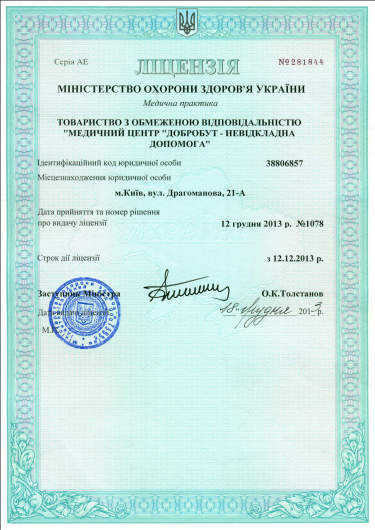
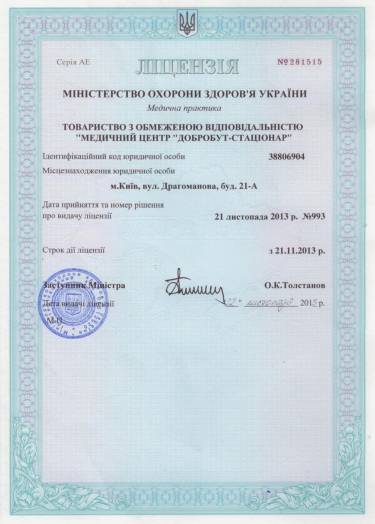
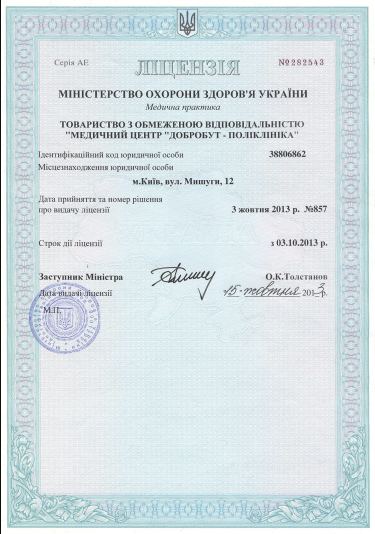
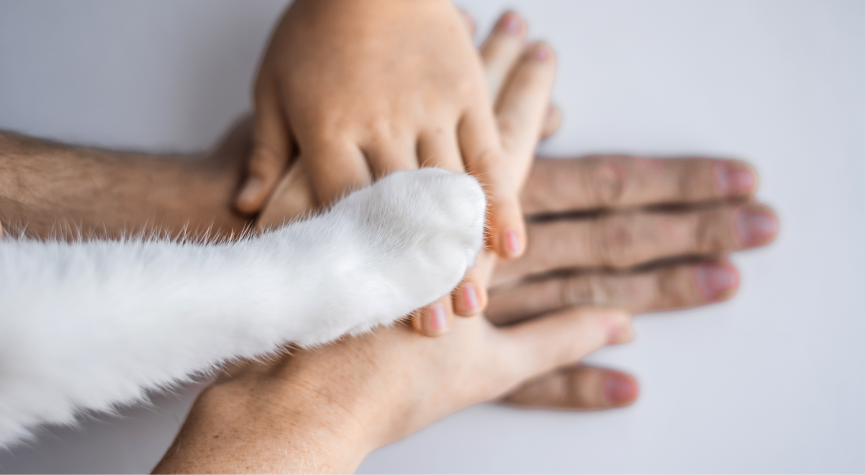


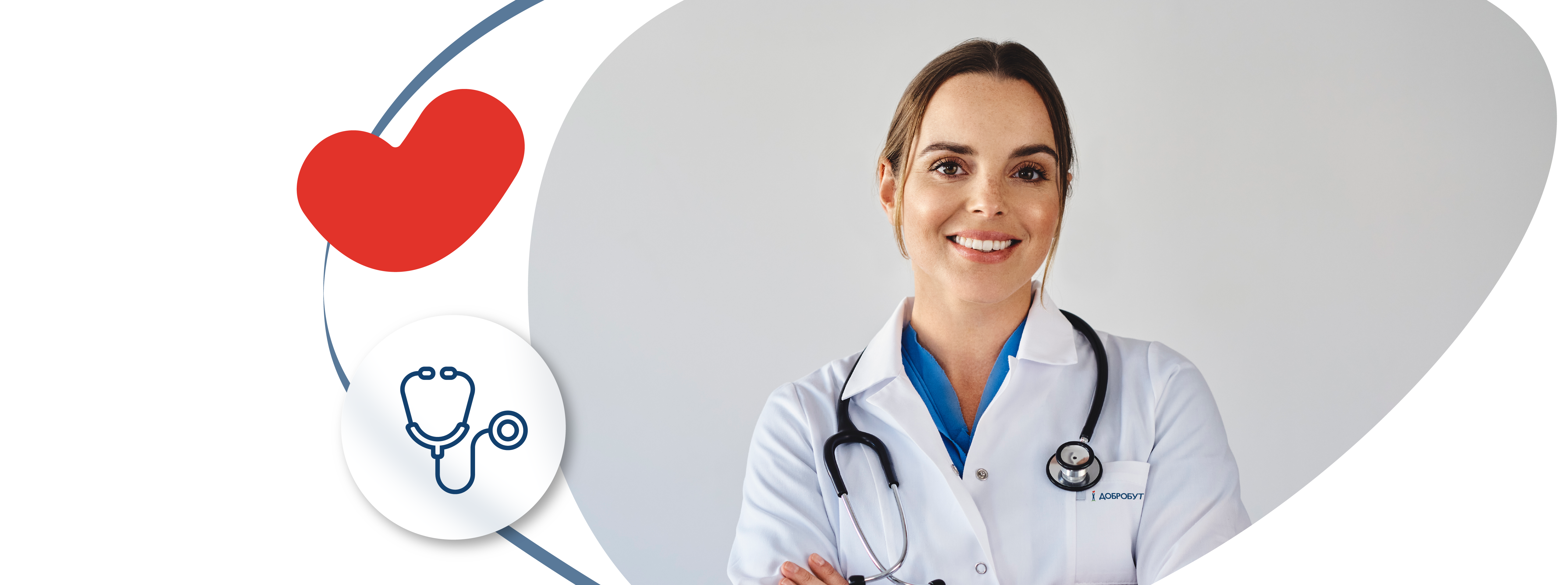













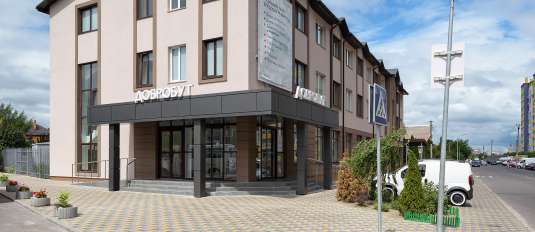
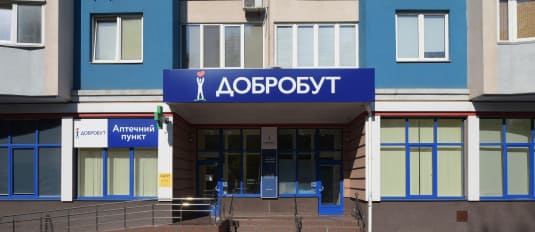

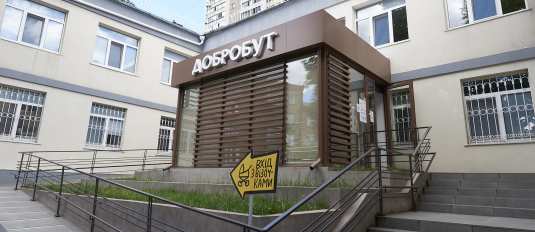



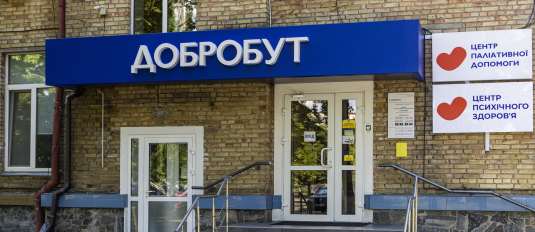
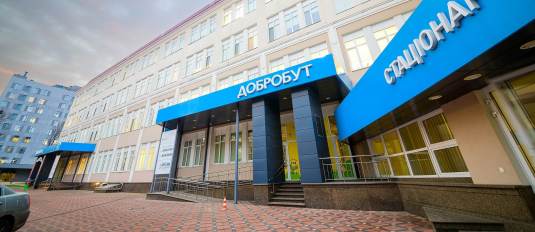

%402x.png)
%402x.png)
